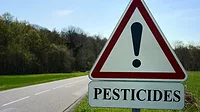ADRA Responds to Crisis-hit Darfur
As tensions escalate in the Darfur region, the Adventist Development and Relief Agency (ADRA) continues to provide aid to desperate internally displaced persons (IDPs) in Darfur, Sudan.
More than two million people have fled their homes to escape violence between alleged government-backed militia, known as Janjaweed, and rebel armies, seeking refuge in camps set up for those who have been displaced within their own country. Widespread rape, murder and looting, as well as attacks on civilians have escalated, threatening the lives of thousands. At least 180,000 people have been killed in the three-year conflict.
Tensions continue to increase in response to the peace treaty signed in early May, between the Sudanese government and the main rebel group. Two other rebel groups rejected the treaty. Many believe that the treaty did not do enough to protect IDPs.
“ADRA's work in the Darfur region is challenging and at significant risk,” says Mario Ochoa, executive vice-president, ADRA International. “But the agency exists to provide aid where it's needed the most. Darfur's IDPs, barely surviving in the face of violence, fear, and deprivation, urgently need our expanded assistance.”
Working in partnership with the United States Agency for International Development (USAID) and other major government donors, ADRA is providing development and emergency relief aid for displaced families in Darfur and throughout war-torn Sudan.
Projects include provision of emergency food aid, access to clean water, health care and improved sanitation, as well as reaching community development goals through small enterprise development projects, agricultural initiatives, animal husbandry, women's literacy programs, and initiatives to aid in the return of displaced persons to their homes.
To combat the effects of dehydration, ADRA has implemented a large water well drilling project of 21 new wells throughout western Darfur, rehabilitated 85 damaged wells, established community water committees, and conducted hygiene education/awareness training for more than 6,500 people. ADRA also has recently completed a second well drilling project, providing 19 new wells, and repairing another 50.
ADRA has received project funding from several governmental donors, such as the European Union, USAID, the U.S. Department of State, and the German Foreign Ministry. UNICEF and other agencies also have funded ADRA projects in Sudan. In addition, ADRA has been working in partnership with the International Office for Migration, UNICEF and various other United Nations agencies.
“ADRA's primary goal in Sudan is to improve living conditions of displaced and vulnerable people to acceptable levels for basic human needs,” Ochoa continues.
“Right now, we're appealing for donations to assist ADRA in continuing and expanding its critical work in the Darfur region. Hundreds of thousands of people are looking to agencies like ADRA for relief from the crisis that threatens their lives,” Ochoa finishes.
For additional information on the organization or its projects, visit www.adra.org.
ND
Looking for a reprint of this article?
From high-res PDFs to custom plaques, order your copy today!





